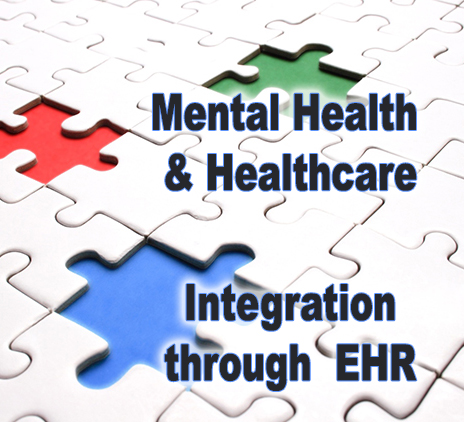Posted By Monique Dever On September 3, 2016
Is the integration of mental health and healthcare the next big step? EHRs can help facilitate for greatest impact.

It would make sense that viewing the mind and body together would build a more complete picture of a person’s health than viewing just one or the other separately. Analyzing a person’s health based solely on one area would be an incomplete assessment, it would be like looking at a jigsaw puzzle with several pieces missing.
According to the Centers for Disease Control and Prevention (CDC), “Tobacco use among people diagnosed with a mental illness (MI) condition is twice that of the general population. In addition, the evidence is extensive for associations between MI and chronic diseases, such as cardiovascular disease, diabetes, obesity, asthma, arthritis, epilepsy, and cancer. Injury rates for both intentional (e.g., homicide) and unintentional (e.g., motor vehicle injuries) injuries are 26 times higher among people with a history of MI than for the general population.” So, it would be safe to say that mental health is a crucial element for good physical health.
So, why would you not include one area when assessing the other? Well, since 1987 the laws have restricted the sharing of the data without patient consent. But the introduction of Electronic Health Records (EHR) is changing all the rules. Policy makers realize that old laws do not fit well with new technologies and that making a few simple changes, could have huge impacts for both individual and public health improvements. The Substance Abuse and Mental Health Services Administration (SAMHSA) recognizes the need for integration of mental health. They state “As we learn more about the physical impacts of traumatic experiences and behavioral health conditions, and the behavioral impacts of physical health conditions, [we] understand the need to view behavioral health as any other health issue. As a consequence, changes will need to be made to systems, financing, laws, and structures to incorporate and respond appropriately to these new understandings.”
Furthermore, the Affordable Care Act includes mental health and substance use disorder services as one of the ten health care benefits covered in the health insurance marketplace. Because of the increasing use of EHRs, this initiative has gained traction and is under review. Exchange of data via Health Information Exchange (HIE) between mental health practitioners and healthcare providers will help improve the quality of care, patient engagement and prevention strategies. Electronic health records (EHRs) provide valuable knowledge of a patient’s overall health and should include both behavioral and physical elements. This can only help providers, including public health professionals, more effectively respond in the care and treatment given to the patient. Many Public Health departments have already incorporated mental health treatment clinics, but we have a long way to go to connect the records of the individuals that need treatment. Connecting the mind and body is truly the only way to treat the whole patient.